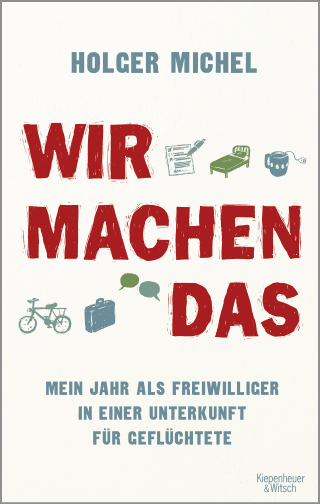Instead of fear mongering, a success story that shows what refugees and their helpers can accomplish when they work together. Holger Michel writes about his work in a refugee shelter, the fight for more humanity – and about the difficulties after the initial euphoria died down.
September 2015. Holger Michel was just going to drop off a few old T-shirts. But he is so moved by what he sees at the hastily improvised refugee shelter in the former town hall of Wilmersdorf in Berlin that he ends up staying all day to help out. Over the course of the following months, Michel and hundreds of volunteers erect the entire infrastructure of the refugee shelter, and eventually he becomes a spokesperson for the volunteers. He coordinates the daily life of hundreds of refugees and helpers and doles out comfort and medicine.
In a soberly humorous way, Michel reports on what he experienced over the course of the year. He describes the failure of the public authorities, being threatened by xenophobes, spontaneous weddings, the revolt against German eating habits, the challenges and chances that the volunteers seize on to make integration possible. And the emergence of a completely new sense of “we.”
“The Wilmersdorf town hall isn’t a refugee shelter like those I’ve seen so often. It is a city within the city, where despite all shortcomings people laugh, where kids can be kids and where refugees are people and not just victims. It is a place where the focus is on human dignity. It is thanks to the tremendous commitment of hundreds of volunteers that residents aren’t just deposited but can live and develop here.” – Susan Sarandon

